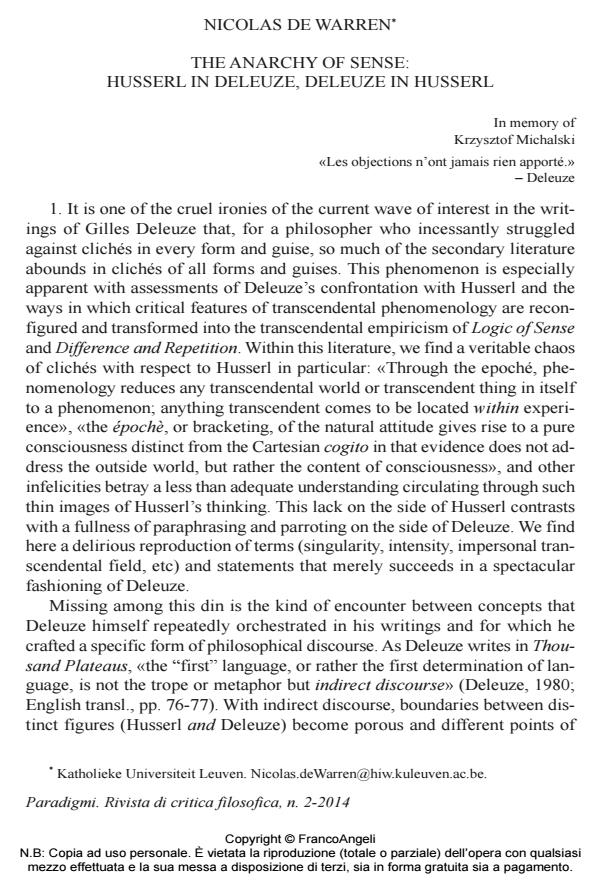The Anarchy of Sense: Husserl in Deleuze, Deleuze in Husserl
Journal title PARADIGMI
Author/s Nicolas De Warren
Publishing Year 2014 Issue 2014/2
Language Italian Pages 21 P. 49-69 File size 222 KB
DOI 10.3280/PARA2014-002004
DOI is like a bar code for intellectual property: to have more infomation
click here
Below, you can see the article first page
If you want to buy this article in PDF format, you can do it, following the instructions to buy download credits

FrancoAngeli is member of Publishers International Linking Association, Inc (PILA), a not-for-profit association which run the CrossRef service enabling links to and from online scholarly content.
By putting Deleuze’s method of indirect discourse in pratice, this essay aims to put up a reciprocal confrontation between Deleuze and Husserl. The first part of the essay investigate Deleuze’s theory of sense in the Fourteenth Series of Logic of Sense. At issue is the husserlian understanding of the noema, which announces the paradox of sense as a non-existing entity, whose anarchic and ambiguous nature challenges every traditional opposition (for example, the subject - object opposition) and motivates the "overcoming" of ontology by transcendental thinking. The author explains how the Deleuzian critique of Husserl’s conception of the noema aims to think sense as an event prior to the noetic-noematic structure of intentionality. This requires, in turn, to liberate the event of sense from consciousness and to think of it as an impersonal transcendental field, not having the form of a synthetic personal consciousness or a subjective identity. The second part is devoted to an analysis of Husserl’s Bernau Manuscripts which tries to show how Deleuze’s hypotesis about the trascendental field is already at work in Husserl’s reflection on time-consciousness.
Keywords: Husserl, Deleuze, time, sense, Bernau Manuscripts.
Nicolas De Warren, The anarchy of sense: husserl in deleuze, deleuze in husserl in "PARADIGMI" 2/2014, pp 49-69, DOI: 10.3280/PARA2014-002004